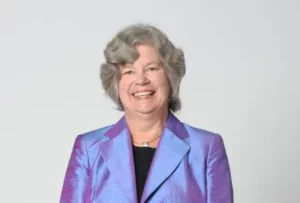And we don’t stop

Opinion: Learning is for everyone – all the time, writes Professor Gayle Avery.
Learning lies at the core of sustainably led businesses and professional practices. It’s well established that trained and educated workers are more productive and perform better on the job. Furthermore, investing in training the workforce adds competitive advantage through increased efficiency and innovation in products, services and solutions, and helps to attract and retain staff. Does your firm train and develop everyone on the team? If people are not learning, the team is missing out on huge benefits irrespective of industry sector, firm size and how technology-based the business is.[1] Both small and large firms benefit from training.
Keeping up
Keeping up with new technical knowledge is vital in these fast-changing times. New components, techniques, regulations and performance expectations all require turning our businesses into learning organisations. An organisation that learns offers different ways of learning for its members – whether they are apprentices or senior managers. Auto manufacturer BMW provides a good example of a company that invests heavily in training and development for its entire 120,000 workforce – expending about the same budget as a medium-sized university. Technical learning often takes place on the job, where staff learn from more experienced colleagues. Online learning at one’s own pace and convenience is also an option. In face-to-face workshops attendees learn not only from the instructor but also from everyone else’s experience. BMW also adopts innovative ways as part of its learning. For example, the company sends its senior managers to work on the factory floor for two days every year to experience production issues first-hand. Apprentices are nurtured in a separate production area before they are allowed on to the main production line. Recently, the company wanted to learn how to manage its ageing workforce, and created a separate production line for a team whose members’ average age was 47 years. The learnings from this experiment unexpectedly benefitted the entire workforce, as outcomes like softer flooring and glare-reducing screens were introduced across the company.
Beyond the technical
However, in running a high-performing and sustainable business, learning involves more than just keeping abreast of technical updates. The human side – leading and dealing with people – is also critical to business success. We can all benefit from learning about leadership skills that work by coaching and mentoring either on the job or by formal courses of different kinds. Irrespective of the actual methods used to learn, research shows that better leadership and management helps a business in many ways, not only financially but also by attracting talent and enhancing the customer experience.
Important practices
Industry associations such as AIRAH play a vital role in supporting workforce skills because the type of training – i.e., general or firm-specific – does not affect the beneficial effect training has on overall business performance. Today’s tip: Three important practices lead to successful training outcomes in Australian companies:[2]
Manage change: Responding to workplace changes is a key reason for training, and training itself forms an essential part of the change-management process. When undergoing change of almost any kind, we benefit from learning about the new technical and relationship behaviours required of us.
Supportive culture: Develop an organisational culture that supports learning. This means a culture characterised by respect for all individuals, open communication, and a willingness to share knowledge and expertise.
Link training to strategy: Check your business strategy to make sure that relevant skills are being developed to shape your organisation’s future.
References
[1] Human Resource Management Journal, 2019

This article appears in Ecolibrium’s June-July 2023 edition
View the archive of previous editions
Latest edition
See everything from the latest edition of Ecolibrium, AIRAH’s official journal.





